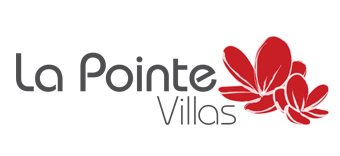About Mauritius
Mauritius is situated in the south west Indian Ocean, slightly over the tropic of Capricorn, in latitude 20o south and longitude 57o east of Greenwich. It is 2,000 km off the east coast of Africa and some 855 km east of Madagascar.
An island of volcanic origin with an area of 2 040 sq. km, it is almost entirely surrounded by coral reefs. The land rises from coastal plains to a central plateau where it reaches a height of 670 meters. The plateau is bordered by three mountain ranges, the highest peak, the Piton de la Petite Rivière Noire, rising to 828 m.
A melting pot of the world’s oldest civilisations, Mauritius is a rare example of social peace and unity in a multi-cultural society. The population boasts origins from the European and African continents, as well as from India and China. With such a cosmopolitan legacy, no wonder our hospitality is legendary.
Mauritius has also enjoyed enduring political stability ever since its early days as an independent nation born in 1968. The Government is democratically elected every 5 years. The Constitution is based on the Westminster Parliamentary model. Our successive governments have all shown strong and sustained commitment to a market-driven economy where free enterprise can flourish and foreign investment prosper.

Useful information for an enjoyable stay in Mauritius:
| Capital | Port-Louis |
| Area of Mauritius | 2 040 sq. km |
| Calling code | +230 |
| Population size | 1.3 million (approx.) |
| Time zone | GMT + 4 hours |
Languages
Mauritius is bilingual (English-French), but its population shares diverse origins with many other languages used in the country.
- The creole (or ‘kreol’), national language, is akin to french.
- French is used by more than 97% of the population.
- English is little used on a daily basis, but generally understood by almost all.
- Hindi is also used, as well as Urdu and Bhojpuri (especially in rural areas).
- Mandarin is used by few.
- Classical Arabic is used by few.
- Among other languages, Italian, Spanish and German are understood by some Mauritians.
Climate
Mauritius has two seasons, winter (May to October), and summer (November to April). Temperatures do not exceed the average 34° C and the minimum are around 10-12° C in winter (July-August).
- Summer is the cyclonic season (December to February).
- The coastline and Port-Louis display highest temperatures in summer.
- The cities of Curepipe, Vacoas and the surroundings, display the lowest temperatures in winter.
- The rain season lasts all summer but there are also periods of rain in winter.
Transport
Driving is on the left. Otherwise, the traffic code is modeled after the international standards and it is easy for the visitor to find bearings.
- Public transport by bus, from 5:30 to 20:00, 6:30 to 6:30 pm in rural and urban area.
- Taxis are available everywhere.
- Several agencies offer car rental.
- Safety belt is mandatory.
- Drink-driving is a punishable offence.
- Smoking is prohibited if the driver is not alone in the vehicle.
- Children under 10 cannot use the front passenger seat.
- Motorcycles must always flow from the left side of the road.
- The priority is to vehicles coming from the right.
- The use of the mobile phone while driving is prohibited.
In the cities, petrol stations operate until 21:00. Only four stations operate 24 hours a day (GRNO, Mapou, Rose Hill and Bagatelle).
Bus rates: Rs 12 to Rs 37, depending on the routes.
Money
The Mauritian currency is the rupee. But the transactions in other currencies (euro, US dollar, pound sterling and Indian rupee) are accepted by some traders. A credit card is advised.
- Banks operate from Monday to Thursday from 9: 00 to 15:00 and on Friday from 9:00 to 16:30. They are closed on Saturdays, Sundays and on public holidays.
- Credit cards are accepted by the majority of traders, regardless of their denomination.
- VAT is refundable on some of your purchases at the counter of the Chamber of Commerce and Industry at the airport.
- To get a VAT refund, the visitor must have his passport.
Personal safety
Some places are to be avoided when you go out alone or in small groups, especially in the evening. If in doubt, ask the hotel or at the villa where you stay.
- It is advised not to move around with large sums of money or valuable objects.
- The emergency numbers are 999 from a landline and from a cell phone 112.
- Firefighters are reachable on the 995 from a landline and 115 from a mobile phone.
- On yachts, the life jacket is mandatory.
Health services
Mauritius has free-for-all public hospitals and private clinics offering paid services.
- The Emergency Service (SAMU) can be reached by calling the 114.
- Some drugs require prescription.
Places of worship
Places of worship often display rules to follow.
- In Hindu temples and mosques, shoes are unauthorized.
- Wear appropriate clothing (no beach wear, for example, or miniskirt).
- Mosques are generally closed to non-Muslims and women.
Various
- Time Zone: GMT +4
- Population size: 1.3 Million (approx)
- Capital: Port Louis
- Rated voltage: 220 to 240 volts.
- Type G (3-pin) Sockets. Some hotels provide Europe E/F type plugs.
- Get a power adapter to recharge your electronic devices.
- Carefully read the manual of your device
Learn more about Mauritius:


